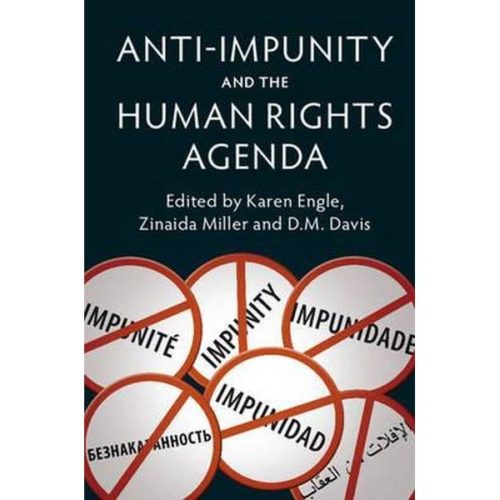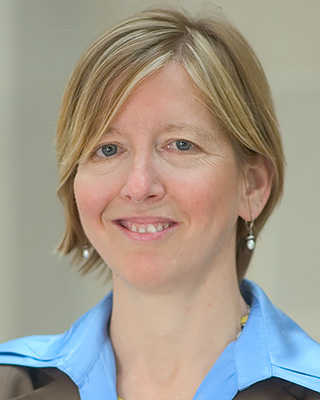 Karen Engle, the Minerva House Drysdale Regents Chair in Law and Founder and Co-director of the Bernard and Audre Rapoport Center for Human Rights and Justice—and, for the 2016-17 academic year, the Deborah Lunder and Alan Ezekiel Founders’ Circle member at the Institute for Advanced Study at Princeton—is the primary editor of an important new book, “Anti-Impunity and the Human Rights Agenda.” The title was released last month by Cambridge University Press in America and the U.K.
Karen Engle, the Minerva House Drysdale Regents Chair in Law and Founder and Co-director of the Bernard and Audre Rapoport Center for Human Rights and Justice—and, for the 2016-17 academic year, the Deborah Lunder and Alan Ezekiel Founders’ Circle member at the Institute for Advanced Study at Princeton—is the primary editor of an important new book, “Anti-Impunity and the Human Rights Agenda.” The title was released last month by Cambridge University Press in America and the U.K.
In addition to her editing duties, Prof. Engle is the sole author of one of the book’s key chapters, and a co-author of another.
The book’s subject is described thusly by Cambridge:
“In the twenty-first century, fighting impunity has become both the rallying cry and a metric of progress for human rights. The new emphasis on criminal prosecution represents a fundamental change in the positions and priorities of students and practitioners of human rights and transitional justice: it has become almost unquestionable common sense that criminal punishment is a legal, political, and pragmatic imperative for addressing human rights violations. This book challenges that common sense. It does so by documenting and critically analyzing the trend toward an anti-impunity norm in a variety of institutional and geographical contexts, with an eye toward the interaction between practices at the global and local levels. Together, the chapters demonstrate how this laser focus on anti-impunity has created blind spots in practice and in scholarship that result in a constricted response to human rights violations, a narrowed conception of justice, and an impoverished approach to peace.”
 The seeds of the book were planted when David Kennedy, the director of the Institute for Global Law and Policy at Harvard Law School, invited Prof. Engle to deliver a 2012 lecture for which her future co-editors, D.M. Davis and Zinaida Miller, served as respondents. The trio believed then that they had the beginnings of a good discussion. (Indeed, that lecture eventually became the first chapter of the book.)
The seeds of the book were planted when David Kennedy, the director of the Institute for Global Law and Policy at Harvard Law School, invited Prof. Engle to deliver a 2012 lecture for which her future co-editors, D.M. Davis and Zinaida Miller, served as respondents. The trio believed then that they had the beginnings of a good discussion. (Indeed, that lecture eventually became the first chapter of the book.)
It was soon after the Harvard Law event that The Rapoport Center, which Engle runs at Texas Law with Prof. Daniel Brinks, hosted the three colleagues at a Spring 2013 conference, “Impunity, Justice and the Human Rights Agenda.” Most of the contributors to “Anti-Impunity and the Human Rights Agenda” attended that conference.
The book’s first review, an all-out rave from Barrie Sander, writing for the Lawfare blog, notes:
“Arriving at a time when the international criminal justice project is increasingly under scrutiny and a surge in divisive and isolationist populism has put many in the human rights community on the defensive, this collection offers a timely problematization of the anti-impunity agenda that has come to dominate human rights thinking over the past two decades…
“the collection traverses an impressive range of issues, balancing general critiques of the anti-impunity agenda with more particularized insights that emerge from the examination of specific contexts. Given the volume’s breadth and richness, this review is restricted to discussing a few of its most thought-provoking insights in an effort to continue the important conversation ignited by its contributors.”
To learn more about Prof. Karen Engle and her work, visit the Rapoport Center website and her faculty profile.
